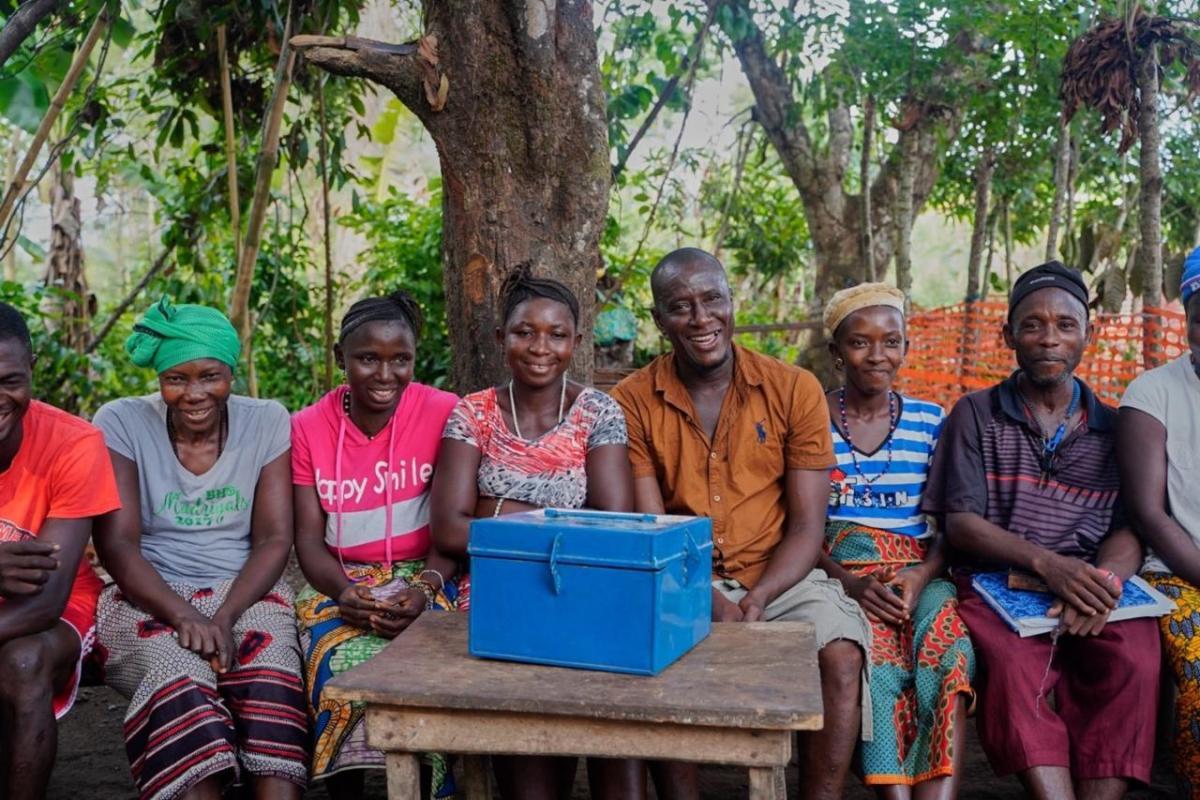Transforming Daily Lives Through Digital Savings

In Sierra Leone, small savings groups have a long history of supporting farmers and marginalized communities, especially women. In short, saving groups have transformed lives, offering financial support and fostering community resilience.
Through increased access and control over resources, saving group members can financially empower their families and communities. CARE’s engagement with Village Savings & Loan Associations (VSLAs) is one such approach with a particular emphasis on supporting women's economic growth of women in rural communities.
Yet with manual saving groups comes its own challenges which involves potential errors, mismanagement of cash, inaccuracies in record-keeping, lost records, mismanagement of loans, limited literate individuals who can read or write etc.
How did we enhance the efficiency of savings groups?
To combat challenges of manual savings, CARE Sierra Leone collaborated with MikashBoks which is a global adaptable digital platform. Through this platform CARE worked on:
- Enhancing the efficiency of financial management of VSLA processes;
- Introducing secure transitions for savings groups;
- Accelerating the adoption of digital financial practices in rural areas; and
- Supporting the transition from cash to wallet.
The Pilot
In Sierra Leone 81 traditional VSLA groups participated in the pilot and were transformed into a digital framework in collaboration with MiKashBoks.
Was digital data collection beneficial?
Through this digital approach the savings groups were able to collect and handle data in a more efficient manner:
- Automated handling, where financial transactions are recorded and managed electronically, reduced human error streamlining processes.
- Accurate automated record-keeping ensured precise and consistent records, easily accessible for review and audit.
- Loans were efficiently managed with automated calculations, clear repayment schedules, and real-time tracking of loan status.
- Ensured transparent record sharing to all members of the group.
- Information became accessible to all members including those who were not literate, through user-friendly interfaces and possibly visual or audio aids, fostering inclusivity and participation.
What helped with bridging the digital divide?
- During the pilot phase of MikashBoks, CARE provided SIM cards and smartphones to VSLA members and village agents for financial transactions.
- Digital literacy trainings were initiated by CARE.
- The application has easy user-interface, visual and audio guides for people who were not literate and could be used offline during poor connectivity.
- For rural women, it provided a gateway to financial independence. The mobile feature enhanced safety and convenience.
- In urban areas, the app enabled women to access practical business advice on-the-go while carrying household and childcare responsibilities and striving for financial independence.
- For young and ambitious urban entrepreneurs, the app acted as a platform for social change. CARE and MiKashBoks worked to alter stigmas around women’s use of technology.
What next?
Sierra Leone’s journey towards an inclusive and digital VSLA, despite its challenges, is promising. While communities may face challenges such as limited literacy, connectivity and reluctance to use technology, the pilot has shown significant achievements.
- With 81 VSLA groups already transitioned to digital operation, there are plans to expand to 200 groups in Sierra Leonne.
- Continuous training and support remain crucial to ensure no member is left behind in digital transformation.
For more information read this report on Digitalizing Savings Groups in Sierra Leone

